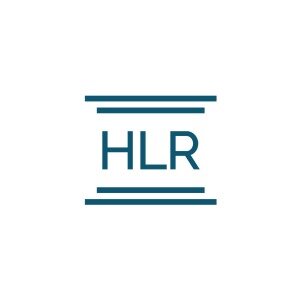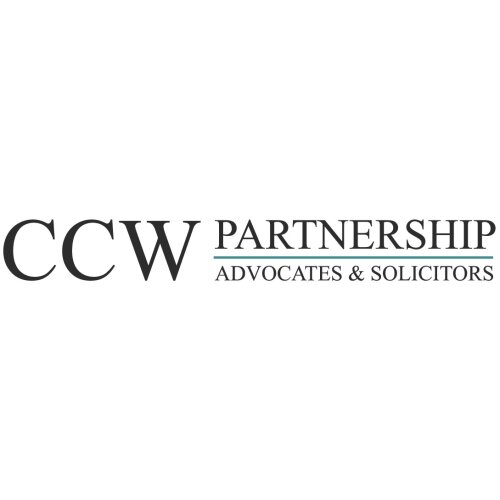Best Restructuring & Insolvency Lawyers in Brunei
Share your needs with us, get contacted by law firms.
Free. Takes 2 min.
Or refine your search by selecting a city:
List of the best lawyers in Brunei
About Restructuring & Insolvency Law in Brunei
Restructuring and insolvency law in Brunei provides the legal framework for dealing with financial distress experienced by businesses and individuals. It encompasses processes and regulations designed to assist parties in managing or resolving insolvency, preserving value in a distressed entity, and distributing assets to creditors in an equitable manner. Typically, these laws allow for options such as debt restructuring, liquidation of assets, company winding-up, and bankruptcy proceedings. The main goals are to support economic stability, facilitate business recovery where possible, and ensure the fair treatment of all stakeholders, including creditors and employees.
Why You May Need a Lawyer
There are many situations where legal advice in restructuring and insolvency is essential in Brunei:
- When your business is facing severe financial difficulties and you are uncertain about the next steps.
- If you are a creditor and need to recover debts from an insolvent company or individual.
- During the process of negotiating with lenders, investors, or other stakeholders regarding repayment plans.
- If your assets or income are at risk due to bankruptcy proceedings brought against you.
- When you need to understand your legal rights and obligations during liquidation or winding-up proceedings.
- If you suspect insolvency-related misconduct, such as fraudulent trading or asset concealment.
- For guidance in filing court applications for insolvency relief or to resist such applications against you.
- To ensure compliance with local requirements, filings, and deadlines set out in Brunei law.
- If you are planning to acquire distressed assets or invest in a company undergoing restructuring.
Engaging a legal professional can help you navigate complex regulations, minimise losses, and protect your interests.
Local Laws Overview
Restructuring and insolvency in Brunei are primarily governed by legislation and judicial practice. The main laws include the Companies Act (Cap. 39), the Bankruptcy Act (Cap. 67), and subsidiary regulations. These laws cover personal and corporate insolvency, including procedures for voluntary and compulsory liquidation, receivership, and bankruptcy.
- Winding-up Procedures: Under the Companies Act, companies can be wound up either voluntarily (by members’ or creditors’ resolution) or by court order on various grounds, including insolvency.
- Bankruptcy: The Bankruptcy Act outlines the process for individuals unable to pay debts exceeding a certain threshold, including the appointment of an Official Receiver and the distribution of assets.
- Debt Restructuring: Laws provide for arrangements and compromises between debtors and creditors that may avert liquidation or bankruptcy, subject to court approval.
- Creditor Rights: Legislation ensures creditors have the legal means to pursue debts, participate in any distribution of assets, and challenge improper conduct by insolvent parties.
- Regulatory Oversight: The Ministry of Finance and Economy, and the Attorney General’s Chambers play active roles in supervising insolvency and restructuring matters.
Understanding how these laws apply to your situation is vital. Procedures often involve strict timelines, formal documentation, and court intervention.
Frequently Asked Questions
What is the difference between restructuring and insolvency?
Restructuring involves reorganising the financial affairs of a struggling business to avoid insolvency and continue operations. Insolvency refers to the situation where a company or individual cannot pay debts as they fall due, usually leading to bankruptcy or liquidation.
Can individuals file for bankruptcy in Brunei?
Yes, individuals unable to pay their debts may voluntarily file for bankruptcy or may be made bankrupt upon application by creditors under the Bankruptcy Act.
What are the main consequences of a company being wound up?
When a company is wound up, its affairs are brought to an end, assets are sold, and proceeds are distributed to creditors. The company ceases to exist post-liquidation.
Is it possible to negotiate with creditors to avoid insolvency?
Yes, Brunei law allows for arrangements and compromises with creditors, which can be formalised and approved by the court to restructure debts and avoid formal insolvency proceedings.
Who administers bankruptcy and liquidation in Brunei?
The Official Receiver, appointed under the Bankruptcy Act or Companies Act, typically administers bankruptcy or winding-up procedures, acting in the interests of creditors.
What protections do creditors have in insolvency cases?
Creditors are entitled to be notified of proceedings, attend meetings, vote on settlements, and receive a proportionate share of recovered assets. Secured creditors often have priority over unsecured creditors.
Are directors personally liable for company debts in insolvency?
Generally, directors are not personally liable for company debts, unless there is evidence of wrongful or fraudulent trading or breach of fiduciary duties.
How long do bankruptcy or liquidation proceedings take?
The duration depends on the complexity of the case, the nature and extent of the assets, creditor claims, and compliance with court requirements, ranging from several months to years.
What are the warning signs of insolvency?
Common signs include inability to pay debts on time, continuous losses, cash flow problems, assets being repossessed, and legal action from creditors.
How can a lawyer assist during insolvency or restructuring?
A lawyer can evaluate your position, advise on your rights and obligations, represent you in negotiations or court, ensure compliance with legal timelines, and help protect your financial interests.
Additional Resources
Here are some local resources and organizations that can assist with restructuring and insolvency issues in Brunei:
- Attorney General’s Chambers: Oversees legislative matters and legal compliance related to restructuring and insolvency.
- Ministry of Finance and Economy: May provide guidance and oversight for financial regulations, including insolvency.
- The Official Receiver’s Office: Administers bankruptcy and liquidation processes.
- Brunei Association of Banks: May offer assistance and information for lenders and debtors.
- Registered Legal Firms: Many law firms in Brunei offer specialist advice in restructuring and insolvency.
For government publications or general guidance, you can contact these offices directly or visit their local offices for more information.
Next Steps
If you believe you are facing insolvency, or if you are owed money by an insolvent party, consider taking the following steps:
- Assess your financial situation and determine the severity of the problem or claim.
- Gather all relevant documentation, including contracts, debt statements, and correspondence.
- Approach a qualified legal professional experienced with restructuring and insolvency in Brunei for an initial consultation.
- Be prepared to discuss your objectives clearly, whether it is debt recovery, asset protection, or restructuring.
- Follow any legal advice provided, particularly regarding deadlines for filings and official notifications.
- If appropriate, engage your lawyer to represent you in negotiations or in court proceedings.
Taking early action with expert legal guidance will give you the best chance of a successful resolution, whether you are seeking to protect your business, recover debts, or manage your financial obligations responsibly.
Lawzana helps you find the best lawyers and law firms in Brunei through a curated and pre-screened list of qualified legal professionals. Our platform offers rankings and detailed profiles of attorneys and law firms, allowing you to compare based on practice areas, including Restructuring & Insolvency, experience, and client feedback.
Each profile includes a description of the firm's areas of practice, client reviews, team members and partners, year of establishment, spoken languages, office locations, contact information, social media presence, and any published articles or resources. Most firms on our platform speak English and are experienced in both local and international legal matters.
Get a quote from top-rated law firms in Brunei — quickly, securely, and without unnecessary hassle.
Disclaimer:
The information provided on this page is for general informational purposes only and does not constitute legal advice. While we strive to ensure the accuracy and relevance of the content, legal information may change over time, and interpretations of the law can vary. You should always consult with a qualified legal professional for advice specific to your situation.
We disclaim all liability for actions taken or not taken based on the content of this page. If you believe any information is incorrect or outdated, please contact us, and we will review and update it where appropriate.
Browse restructuring & insolvency law firms by city in Brunei
Refine your search by selecting a city.














